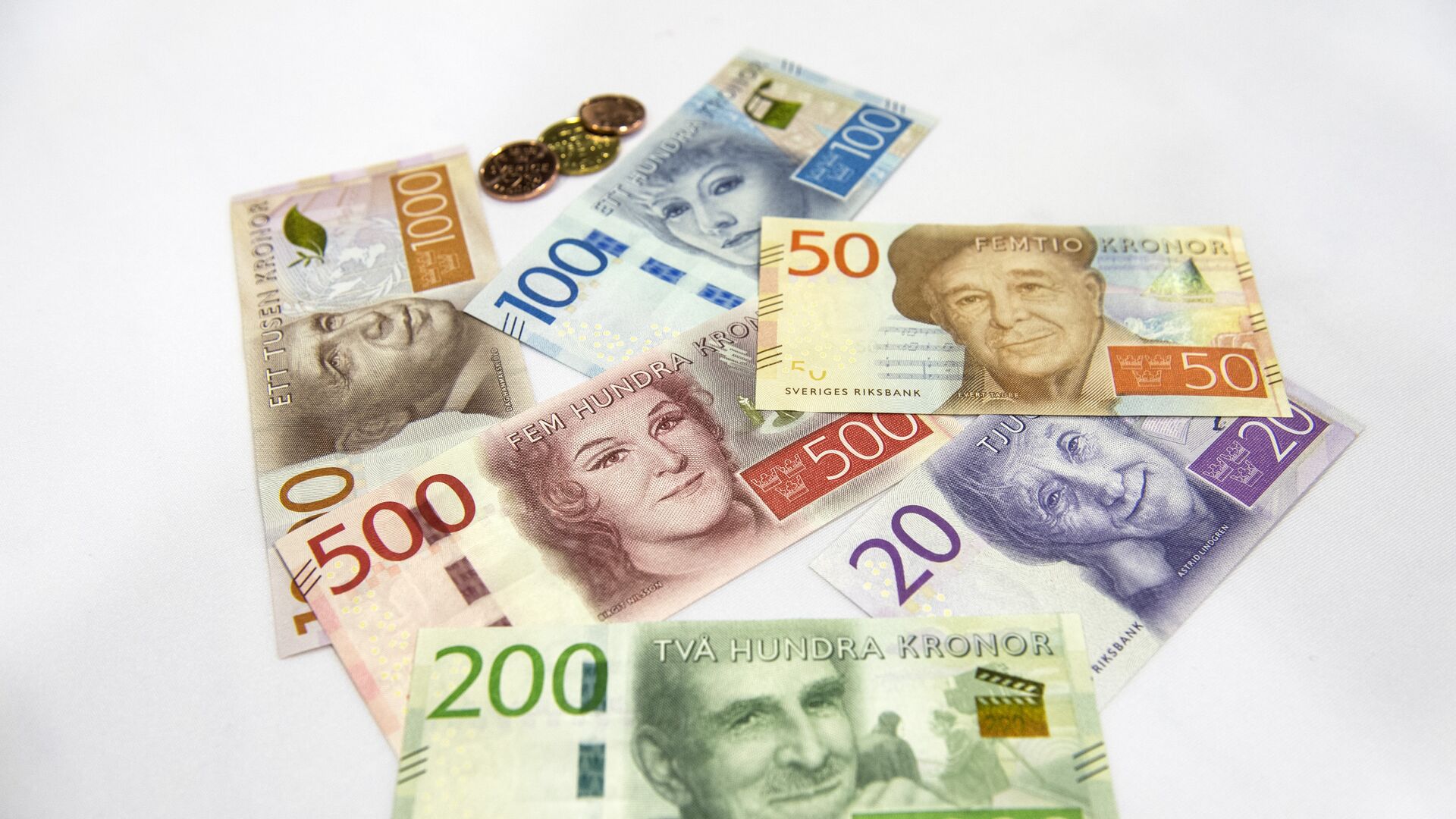https://sputnikglobe.com/20221010/sweden-must-accept-lower-living-standard-ex-central-bank-chief-says-1101664586.html
Sweden Must Accept Lower Living Standard, Former Central Bank Chief Says
Sweden Must Accept Lower Living Standard, Former Central Bank Chief Says
Sputnik International
Earlier this year, even the outgoing Swedish government admitted that a combination of high energy, food prices and rising interest rates is expected to stifle... 10.10.2022, Sputnik International
2022-10-10T07:34+0000
2022-10-10T07:34+0000
2022-10-19T20:27+0000
economy
sweden
newsfeed
europe
news
https://cdn1.img.sputnikglobe.com/img/105030/33/1050303378_0:0:5482:3084_1920x0_80_0_0_9189f5dbd873210f8ed75d54458e6c9e.jpg
Inflation will impoverish Sweden and the country must accept a lower standard of living - a fact politicians must convey clearly to the population, Lars Heikensten, former head of the Central Bank and now chairman of the Fiscal Policy Council which evaluates government policy, has said. If the fiscal policy framework is to be maintained, major compromises must be made by the next government, Heikensten told Swedish Radio. Instead, he said, the parties tipped to form the next government after the general election in September, have issued “counterproductive” election pledges that risk fueling inflation further. He said that promises of compensation for higher petrol and electricity prices, which both the outgoing and the incoming governments have made, were particularly unhelpful.Furthermore, the proposed measures risk hitting the housing market, which has been dubbed the holy cow and the very engine of the Swedish economy, bolstering employment and fueling numerous tax deductions. However, severe price drops in the housing market are now expected to lead to an increase in unemployment, which in turn will promote more price drops when interest and amortization cannot be paid by unemployed mortgage holders, resulting in a vicious circle.According to Heikensten, Swedes will be quickly forced to increase their savings and productivity instead of further increasing their borrowing and consumption, which will have a tremendous bearing on the housing market.As of now, Sweden's economy is already suffering as a result of backfiring EU sanctions against Russia that were meant to “punish” Moscow for its special operation in Ukraine, yet exacerbated Europe's energy and cost-of-living crises. The overall inflation rate in Sweden reached a record 9 percent in August, a level unseen in decades, with numerous articles hitting two-digit numbers.Furthermore, the country's power supply remains questionable, as authorities have warned of possible power shortages this coming winter amid a worsening energy pinch. According to the Swedish Civil Contingencies agency (MSB), power rationing could affect traffic lights, trams, heating and communications as well as electronic locks to properties, to name a few.Earlier this year, outgoing Finance Minister Mikael Damberg admitted that a combination of high energy and food prices around the world - and in Sweden - and rising interest rates is expected to put a damper on growth and undermine private consumption. Earlier in September, Sweden's Central Bank announced its sharpest rate hike in nearly three decades, raising it by a full percent point to 1.75 percent in a bid to curb soaring inflation.
https://sputnikglobe.com/20221006/never-done-that-before-swedish-churches-facing-closure-amid-rocketing-heating-bills-1101558029.html
sweden
Sputnik International
feedback@sputniknews.com
+74956456601
MIA „Rossiya Segodnya“
2022
News
en_EN
Sputnik International
feedback@sputniknews.com
+74956456601
MIA „Rossiya Segodnya“
Sputnik International
feedback@sputniknews.com
+74956456601
MIA „Rossiya Segodnya“
sweden, newsfeed, europe, news
sweden, newsfeed, europe, news
Sweden Must Accept Lower Living Standard, Former Central Bank Chief Says
07:34 GMT 10.10.2022 (Updated: 20:27 GMT 19.10.2022) Earlier this year, even the outgoing Swedish government admitted that a combination of high energy, food prices and rising interest rates is expected to stifle growth in the years ahead and undermine households' purchasing power and, consequently, private consumption.
Inflation will impoverish Sweden and the country must accept a lower standard of living - a fact politicians must convey clearly to the population, Lars Heikensten, former head of the Central Bank and now chairman of the Fiscal Policy Council which evaluates government policy, has said.
If the fiscal policy framework is to be maintained, major compromises must be made by the next government, Heikensten
told Swedish Radio. Instead, he said, the parties tipped to form the next government after the general election in September, have issued “counterproductive” election pledges that risk fueling inflation further. He said that promises of compensation for higher petrol and electricity prices, which both the outgoing and the incoming governments have made, were particularly unhelpful.
“This will strengthen demand for electricity and petrol, but what we need to do in this situation is to save electricity and petrol to bring the price down,” Heikensten emphasized.
Furthermore, the proposed measures risk hitting the housing market, which has been dubbed the holy cow and the very engine of the Swedish economy, bolstering employment and fueling numerous tax deductions. However, severe price drops in the housing market are now expected to lead to an increase in unemployment, which in turn will promote more price drops when interest and amortization cannot be paid by unemployed mortgage holders, resulting in a vicious circle.
“It would be highly inappropriate to set fire to the economy and anticipate demand in this situation, when the Central Bank is trying to slow down. It will lead to us getting higher interest rates, which in turn can lead to problems in the housing market,” Heikensten argued.
According to Heikensten, Swedes will be quickly forced to increase their savings and productivity instead of further increasing their borrowing and consumption, which will have a tremendous bearing on the housing market.

6 October 2022, 06:06 GMT
As of now, Sweden's economy is already suffering as a result of backfiring EU sanctions against Russia that were meant to “punish” Moscow for its special operation in Ukraine, yet exacerbated Europe's energy and cost-of-living crises. The overall inflation rate in Sweden reached a record 9 percent in August, a level unseen in decades, with numerous articles hitting two-digit numbers.
Furthermore, the country's power supply remains questionable, as authorities have warned of possible power shortages this coming winter amid a worsening energy pinch. According to the Swedish Civil Contingencies agency (MSB), power rationing could affect traffic lights, trams, heating and communications as well as electronic locks to properties, to name a few.
Earlier this year, outgoing Finance Minister Mikael Damberg admitted that a combination of high energy and food prices around the world - and in Sweden - and rising interest rates is expected to put a damper on growth and undermine private consumption. Earlier in September, Sweden's Central Bank announced its sharpest rate hike in nearly three decades, raising it by a full percent point to 1.75 percent in a bid to curb soaring inflation.



